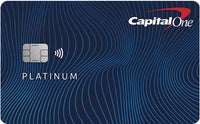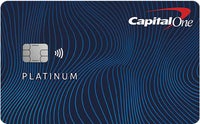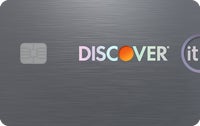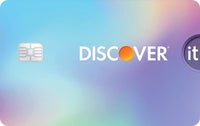How to get a credit card for the first time




Key takeaways
- There are many excellent credit cards for beginners, including cards that offer rewards.
- Before you apply for your first credit card, check your credit score and compare your options.
- After you get your first credit card, focus on making on-time payments and keeping your balance as low as possible.
There are many benefits to a first credit card, which is why you shouldn’t rush through the process. Before you start filling out credit card applications, be sure you have a good understanding of the basics of credit. You should know how credit card interest works and how to pay off your balance in a way that lets you avoid interest charges. It’s also a good idea to learn how credit scores work and why building good credit is so important.
Once you’re ready to apply for your first credit card, it’s time to start weighing your options. If you’re a credit newcomer, you probably won’t have access to most credit cards because issuers don’t have the data to assess how much of a credit risk you might be. Still, there are a couple of ways you can get access to your first credit card account.
Here’s what you need to know about how to get a credit card for the first time:
Step 1: Before you apply for your first credit card
The process doesn’t necessarily start with a credit card application. There are a few things you need to keep in mind before you get to that step.
You probably won’t qualify for some cards, and that’s okay
If you’re new to credit, you can’t assume you’ll be approved for all the cards you’re interested in. The top rewards credit cards require a credit score in the “good or excellent” range, which starts at 670 for the FICO credit scoring model.
When you apply for a credit card, the issuer reviews your credit report before making a decision to approve or reject your application. If there isn’t enough evidence that you’re a good borrower, it may consider you a credit risk and deny your application.
If you have a long history with a bank or a credit union, consider exploring its credit card options. Your bank has a record of your financial transactions and a history of working with you already, so it may be more likely to approve you for credit than other financial institutions.
You can check your credit for free
It’s a good idea to check your credit score before applying for your first credit card. Not only will you know where you stand, but you’ll also be able to check your credit report for errors and correct any mistakes you might find.
Fortunately, there are many ways to review both your credit report and your credit score for free. Capital One’s CreditWise program and American Express’s MyCredit Guide are two good options, and you can access them even if you don’t bank with Capital One or Amex. Once you know how your credit may be reported to lenders, you can apply for cards within the appropriate credit range or work on improving your credit score before you apply.
Step 2: Selecting a card
Now that you know how your credit might affect your card options, it’s time to look into cards you’re likely to get approved for.
Consider secured credit cards, which are easier to get
If you have fair or bad credit, a secured credit card can offer you a foot in the door. Secured credit cards are easier to obtain because they require a refundable security deposit to establish your credit limit. Typically, your credit limit will be equal to the amount of money you supply. Most lenders require a minimum deposit of around $200.
Once you have a secured credit card, you can make a few small charges every month and pay off your balance in full. That’ll help you build your credit score quickly. Many lenders will automatically refund your security deposit and graduate you to a standard credit card once you’ve proved you can use credit responsibly.
Understand the two major types of rewards: cash back and travel points
If you have good credit, you can probably get approved for a rewards credit card. There are two major types of credit card rewards to choose from: cash back and travel rewards.
Cash back is a simple concept. You get a percentage of every qualified purchase returned to you. It’s like a small discount.
For example, the Wells Fargo Active Cash® Card gives unlimited 2 percent cash rewards back on purchases. So, if you spend $100 on the card, you’ll earn $2 in cash rewards. There are many different ways to redeem cash back rewards, but many people choose a statement credit toward their credit card balance.
Travel rewards are a little more complicated, especially for first-time credit card users. With a travel card, you earn points or miles that you can then redeem for airfare, hotels, car rentals and cruises, among other travel purchases.
For example, the Capital One VentureOne Rewards Credit Card offers 1.25 miles per dollar spent on every purchase and 5 miles per dollar on hotels, vacation rentals and rental cars booked through Capital One Travel. You can use the miles you earn to book additional travel deals through Capital One’s travel portal or cover the cost of travel-related purchases you’ve made elsewhere.
Become an authorized user
One of the easiest ways to get started with credit is by becoming an authorized user on somebody else’s credit card account. You’ll be able to make charges on the credit card, but the primary cardholder will be responsible for making payments. This is a great option if you’re younger than 18, since many credit card issuers allow cardholders to add a minor as an authorized user. If your parents add you to one of their credit cards, their credit usage could appear on your credit report. Every on-time payment they make can help boost your credit score.
You don’t even need to use the credit card yourself if you don’t want to. As long as your name is on the account, you’re an authorized user. That said, this could be a good opportunity to practice being a responsible cardholder. Talk to your parents about the amount of money you can afford to charge to the card every month, and make sure you pay them back for any charges you make on their account. This can help you get into the habit of making monthly credit card payments.
Identify important cardholder benefits
Many credit card companies offer different kinds of benefits and perks to their cardholders, so it’s worth considering which of these benefits might be most important to you. If you love to travel, you may want a card that offers travel rewards and perks such as airport lounge access and hotel upgrades. If you aren’t a big traveler, an everyday spending card that offers rotating bonus categories might be more valuable.
There are many different ways to choose a rewards credit card. Do you want a credit card that offers cash back or do you want to stockpile points and miles? Do you want to save on interest with an introductory 0 percent APR or do you want a juicy welcome bonus? What about cellphone insurance, travel accident insurance or primary auto rental coverage? The right credit card can help you earn while you spend, so carefully consider what might benefit you the most.
Step 3: Applying for a card
You’ve looked at a few credit cards and know what you want. Now, you can finally apply — while keeping several things in mind.
Don’t apply for too many cards or it will hurt your credit
If you apply for a lot of credit cards in a short time, you run the risk of having too many inquiries on your credit report. That can decrease your credit score and look risky to other lenders, making it more difficult to get approved for credit.
We recommend applying for just one credit card at a time and waiting two months to apply for another one. That gives your credit score time to recover from hard inquiries. It also allows you to make an informed decision about which cards you want to add to your wallet.
Understand what counts as income on a credit card application
When you apply for a credit card, you’ll need to report your income as part of the application. This helps credit card issuers verify whether you have enough money to pay off your debt obligations.
If you’re over 21 years old, list your total household income. This could include money you earn yourself, income from a spouse or partner and any freelance or side-gig payments you may receive.
If you are under 21, card issuers can only look at your individual income (even if you have a spouse or partner who is 21 or older). This can include income you earn yourself through work or other means, as well as income someone else (such as a parent) regularly deposits into an account you hold. You should also list any income you earn from any businesses or companies you own, even if you share ownership with someone else.
If you are a student listing income on a credit card application, make sure to include any scholarship and grant money that’s left over after you pay for tuition and other school expenses.
Step 4: After you’re approved
You’ve applied for your first credit card, and hopefully, you’ve been approved. Now, you want to adopt some healthy credit card habits.
Do these two things to build credit
Credit scores are calculated using mathematical models. The FICO scoring model is the most common, and its model is based on five unique factors. This means that the best way to build your credit is to focus on the two biggest factors in your FICO score: payment history and credit utilization. These account for a combined 65 percent of your credit score.
Payment history makes up 35 percent of your credit score and calculates how often you pay your bills on time. This is why many people use credit card autopay to ensure that they never miss a payment.
Credit utilization compares your current debt to your available credit and accounts for 30 percent of your score. For example, having a credit limit of $1,000 and a balance of $500 gives you a 50 percent credit utilization ratio. It’s a good idea to keep your balances below 30 percent of your available credit whenever possible, even if it means making mid-month credit payments.
The remaining 35 percent includes your length of credit history, your credit mix and any recent new credit requests you might have made, but as a new cardholder, you don’t have to worry about these factors as much.
Never carry a balance if you can avoid it
If you’ve ever heard that carrying a small balance on your credit card is good for your credit, you should know that’s a myth. There’s no credit-building benefit to carrying a balance on your credit card. Moreover, there are many benefits to paying off your balance in full before it starts to accrue interest.
If you are unable to pay your credit card bill in full, pay off as much as you can. That way, you avoid unnecessary interest charges while keeping your credit utilization as low as possible. If you don’t have a lot of extra money at the end of the month, make at least the minimum payment by the due date. You won’t be able to avoid interest charges, but your credit score won’t take a hit from a missed credit card payment.
Consider upgrading your credit card instead of canceling it
After using your first credit card responsibly for some time, your credit score will likely improve — and you might want to apply for a card that offers higher rewards or better benefits. When you get your new credit card, consider keeping your old credit card account open instead of closing it. Closing your card would erase that credit line from your credit report and potentially lower your credit score. In general, it’s better for your credit to avoid closing old card accounts unless you’re being charged fees for keeping them open.
Instead of canceling an old card, contact your credit issuer and ask if you can upgrade to a better credit card. This shouldn’t require a new application or credit pull — and in some cases, you may even receive a lower interest rate or a higher credit limit.
Track your spending all month long
It’s easy to swipe your credit card in a store or type in the number when checking out online, but it’s also just as easy to forget what you used your credit card to purchase throughout the month. Most credit card companies and banks offer online portals and mobile apps that make it easy to review your spending, so make sure you take a look at where your money’s going. That way, you’ll have a good idea of what to expect when you get your credit card bill.
If you want to take it to the next level, consider signing up for a budgeting app. Designed to help you avoid overspending, such apps can be excellent tools for getting out of debt, saving money and achieving long-term financial goals.
Don’t charge anything you can’t afford
Using credit cards to make large purchases is a great way to earn a lot of rewards quickly. That said, you should only make big purchases (or really any purchases) with a credit card if you know you can afford to pay your bill off at the end of the month.
Carrying a balance on your credit card can lead to expensive interest payments that will make your purchases cost more than you intended to pay for them. If you need to borrow money for a large expense that you know you won’t be able to pay off right now, it may be worthwhile to look into a low-interest personal loan with a set repayment plan.
There may be times when you decide paying interest rates and fees is worth carrying a balance on your card for the short term. If you must carry a balance, make a plan to pay off your debt before it begins to grow and becomes unmanageable.
Best credit cards for beginners
The bottom line
Getting started with credit cards is exciting, but it’s important to take time to embark on the journey well-prepared. Look for a basic, no-annual-fee card and use it for small purchases. Find one that offers favorable terms and gets you the most you can get with your credit situation.
We’ve listed a few top credit cards for beginners, but these aren’t the only decent options to consider. You can head over to Bankrate’s CardMatch™ tool to check card offers tailored to your credit profile. This tool only shows offers that you have a good chance of qualifying for, so it’s a good place to start.
Once your new credit card is in your wallet, practice good credit habits. The important thing is to build a solid payment history that will help you qualify for top-tier rewards cards in the future. You’ll be thanking yourself for years to come.
Why we ask for feedback Your feedback helps us improve our content and services. It takes less than a minute to complete.
Your responses are anonymous and will only be used for improving our website.






